Political Prisoners Attacked By Violent Inmates In Iran Jail
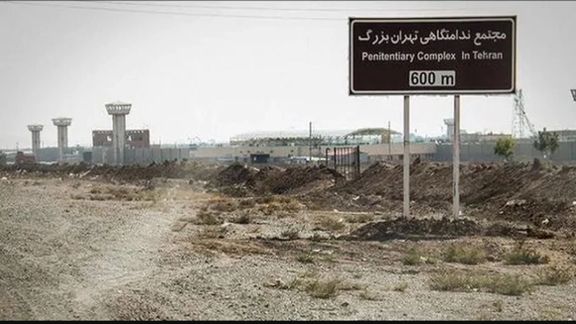
A human rights group and activists say that several political prisoners were attacked and injured in their ward by violent inmates in a Tehran prison on Friday.

A human rights group and activists say that several political prisoners were attacked and injured in their ward by violent inmates in a Tehran prison on Friday.
The Human Rights Activists’ News Agency (HRANA) reported that violent inmates attacked the political prisoners in ward 2 of the Greater Tehran Penitentiary injuring several. A few were taken to the prison’s infirmary for their injuries.
Ahmad-Reza Haeri, a former political prisoner tweeted that the guards did not intervene and left the gates locked as the attack was taking place, despite pleas of help from the political prisoners.
Many male and female political prisoners have complained in the past that interrogators or prison officials had threatened them with having violent inmates attack them.
Haeri also reported that the political inmates have been moved to an unknown location and have no contact with the outside world.
Hrana said that political prisoners in the Greater Tehran Penitentiary had complained before of being kept with violent inmates despite laws to separate the prisoners.
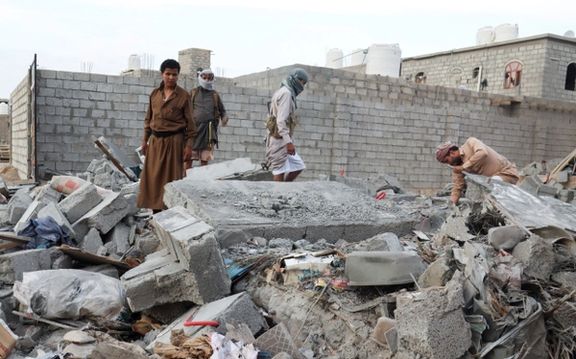
Recent statements from Iran and Saudi Arabia have provided hope that a pathway might be emerging to an end to the bitter seven-year civil war in Yemen.
The conflict has killed an estimated quarter of a million people and left millions more homeless.
On September 21, officials from Saudi Arabia and Iran – the Middle East’s two biggest powers and bitterest rivals – met at Baghdad airport for the fourth round of talks aimed at improving relations. Three other rounds of direct talks took place during the administration of moderate Iranian president Hassan Rouhani. There was a short hiatus in August while the new – and deeply conservative – president, Ebrahim Raisi, took office, but in recent weeks new momentum has been found.
Commenting at the beginning of October, Saudi minister of foreign affairs, Prince Faisal bin Farhan al-Saud, expressed the hope that the talks would “provide a basis to address unresolved issues between the two sides”. The following day, Iranian foreign ministry spokesman, Saeed Khatibzadeh, told reporters that all parties were “trying to start a sustainable relationship within a mutually beneficial framework”, adding that talks were “in their best state”.
The talks came just a month after the Baghdad International Conference for Cooperation and Participation brought representatives from Saudi Arabia, Iran, Turkey, Egypt and others together to discuss regional security concerns. Saudi Arabia and Iran are, of course, central to regional security, but have regularly found themselves on opposing sides of regional conflicts.
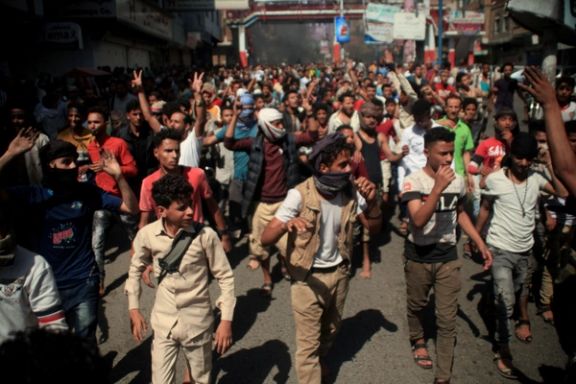
While tensions between the two states have been high, in recent years there has been an acceptance among Saudi officials that Riyadh’s confrontational policy towards Iran has failed. But a great deal of work needs to be done to address not only decades of animosity but also the practicalities of ending conflict in Yemen. The semi-regular prisoner swaps will only go so far towards achieving this.
While many date the rivalry between Saudi Arabia and Iran to the establishment of the Islamic Republic of Iran in 1979, tensions can be traced far earlier – reflecting a series of issues pertaining to geography and the treatment of minority groups. But the establishment of the Islamic Republic in Iran raised the pressure. The explicitly anti-monarchical vision of Iran’s supreme leader, Ruhollah Khomeini, didn’t help matters as Saudi Arabia’s ruling al-Saud family found themselves the subject of a great deal of criticism from Iran’s clerical leadership.
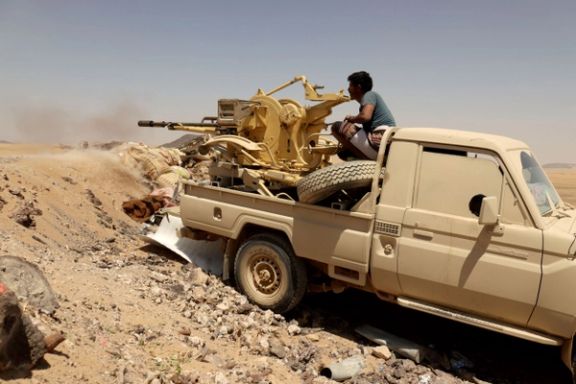
In the following decades, this rivalry has begun to play out in divided societies across the Middle East such as the “proxy arenas” of Bahrain, Iraq, Lebanon, and particularly Syria and Yemen, often with devastating results. But it has been the conflict in Yemen – a bitter struggle that until now has shown no sign of abating – which is the biggest concern. In Yemen the Saudi-backed Hadi military coalition has been at war with the Houthi rebel movement which receives funding from Iran but honed its military skills over two decades of conflict with the Yemeni government.
As Yemen watchers have observed, the war is actually comprised of a number of different conflicts. Central to this is a conflict between government forces and the Houthi movement, but adding to this complexity is the presence of a secessionist movement in the south of Yemen. There is also tribal competition in the east and competition between different branches of the military along the Red Sea coast. These groups receive varying levels of support from external powers, including Saudi Arabia, Iran and the UAE. These different fault lines in the conflict have mapped onto the geography of the state, facilitating its fragmentation.
A resolution of tensions between Saudi Arabia and Iran can have a dramatic impact across the region. Yet the interplay of regional and local politics means that fighting in Yemen can hinder any regional peace agreements. Meanwhile, tensions continue thanks to the provision of funding by regional powers to local groups in pursuit of increased influence.
As a consequence, a clear mechanism to build trust – and ultimately peace – is needed to bring about an end to fighting in Yemen. This mechanism is the subject of discussions between Saudi and Iranian officials – but reports suggest that proposals have been taken to senior Houthis in Yemen.
For Saudi Arabia, any peace with Iran is dependent on a cessation of attacks on its soil from Houthi missiles. This will require Iranian guarantees that Houthi attacks on the kingdom will end. It may also require the reopening of Sana’a airport, which currently remains under blockade. In return, Iranians expect Saudi Arabia to withdraw its opposition to the nuclear deal and a resumption of diplomatic relations.
But peacebuilding is never easy. Two days after the Saudi statement about the good progress of peace talks, the interception of ballistic missiles and “bomb-laden” drones launched by the Houthis towards Saudi Arabia highlighted just how precarious things are in Yemen. So there’s still a lot of work to be done, but – seemingly for the first time since this bitter conflict flared in 2014 – there is confidence on all sides that this bloody mess can be resolved.
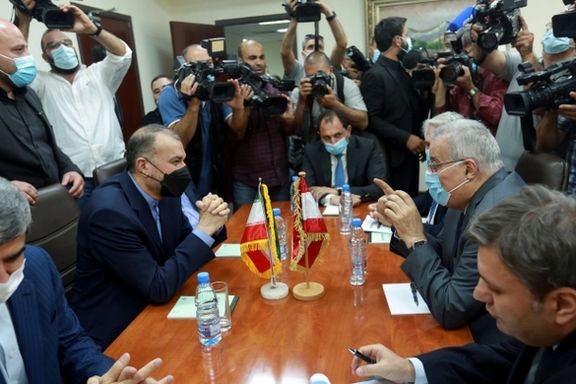
Iran wants to continue sending fuel to Lebanon and hopes for an agreement with Beirut, foreign minister Hossein Amir-Abdollahian said in Beirut on Friday.
The Tehran-backed Lebanese Shi'ite Hezbollah group has been co-ordinating Iranian fuel shipments to Lebanon since August despite United States sanctions threatening punitive action against buyers of Iranian oil sales. Lebanon faces acute shortages of gasoline and diesel − the latter widely used to generate electricity – after an economic meltdown including a collapsed Lebanese pound.
Amir-Abdollahian held talks with President Michel Aoun and Prime Minister Najib Mikati Thursday. Mikati has said the Iranian fuel shipments breach his country's sovereignty.
"At any point in time if the Lebanese government asks Iran formally within the context of their brotherly ties … Iran is ready to send fuel products," Amir-Abdollahian said at a news conference.
While Hezbollah has been happy to draw kudos its role in the fuel shipments – coming by truck from Baniyas port in Syria after arriving by sea – the party’s critics and opponents say it is usurping state authority.
“Broadly speaking, fuel from a country subject to extensive sanctions like Iran is not very clearly a sustainable solution to Lebanon’s energy crisis,” US State Department spokesman Ned Price told reporters in his briefing Thursday. “This is…Hezbollah playing a public-relations game, not engaged in constructive problem solving.”
Amir-Abdollahian said Friday that given the dire situation in Lebanon – where 75 percent of the population now live in poverty – he hoped the US would waive sanctions to allow Iran to help. However Iran itself faces a serious economic crisis, with little to spare and a population that resents expenditures in foreign countries.
Flouting sanctions
Sending fuel via Syria to Hezbollah, which it can sell partly on the open market to raise money, flouts a range of US sanctions against Syria, Hezbollah and Iran.
With Lebanon – where most political groups have regional affiliations – squeezed in recent years by tensions between Saudi Arabia and Iran, Amir-Abdollahian Friday reiterated Tehran’s commitment to further talks with Riyadh, which he said had been going in the right direction.
“We and Saudi Arabia have reached some agreements in certain areas, and we welcome these talks,” he said. “Our talks with Saudi Arabia benefit the region. Iran and Saudi Arabia are two important countries that play a vital role in guaranteeing security in the region.”
The new Iranian government of President Ebrahim Raisi (Raeesi) has been talking up the importance of developing diplomatic and economic relations with its neighbors. It has attached little urgency to restarting Vienna talks over resuming its 2015 nuclear deal with world powers, talks that were prioritized by the previous government of President Hassan Rouhani.
Amir-Abdollahian said Iran would not “not waste time with negotiations” if other parties were “not serious about resuming” the Vienna process. The foreign minister has said the onus remains with the US to lift the ‘maximum pressure’ sanctions that it imposed on Iran when it left the nuclear deal in 2018. The Vienna talks have been suspended since June, ostensibly pending the transition in Tehran.
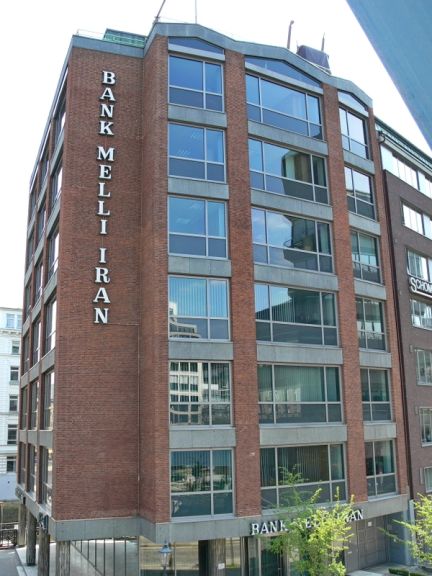
German finance regulator BaFin said Friday it had banned a Hamburg-based branch of Bank Melli Iran from issuing loans citing infringement of transparency rules.
"BaFin had identified contraventions of the requirements for proper business organisation within the meaning of section 25a (1) of the German Banking Act caused by infringement of the four-eyes principle," BaFin said in a statement.
BaFin said its order became final on Oct. 7. It is not clear if the infringements had anything to do with US banking sanctions on Iran.
Iranian banks have opaque practices and an international watchdog, the Financial Action Task Force (FATF) has put Iran on its blacklist along with North Korea for lack of financial transparency. This has put limits on Iran's banking relations with the world.
US sanctions have also impacted Iran's banking system. Former US President Donald Trump withdrew from the 2015 nuclear accord between Iran and world powers, including the European Union, and reimposed a wide array of sanctions on the Islamic Republic, which made it almost impossible for Iranian banks to do business in the West.
The Biden administration wants to revive the accord.

Reports of a halt in Iranian trucks entering Turkey were "completely fake and mischievous," Iran's Consul-General in Erzurum, eastern Turkey, said Thursday.
Sajjad Soltanzadeh, said he had been told by Turkish customs that trucks were moving both ways as usual between the two countries and that 400 Iranian trucks had entered Thursday.
Ozjan Alash (Özcan Alaş in Turkish), president of the Turkish Association for Development of Trade with Iran, told Russia's RIA Novosti Thursday that Ankara had stopped Iranian trucks in retaliation for Iran denying entry to Turkish trucks. “The trade turnover between Iran and Turkey has been completely suspended due to the tense situation on the border between Iran and Azerbaijan,” Alash said.
Alash expressed concern over any restrictions, given trade had already plummeted due to the Covid-19 pandemic. United States ‘maximum pressure’ sanctions introduced in 2018 slashed Iran-Turkey trade from around $10 billion to 5.6 billion in 2019. From January until the end of Julythis year it was $2.5 billion.
Turkey is a close ally of Azerbaijan and has supported it over rising tensions with Iran, which have centered on Tehran’s vehicular access to Armenia through territory occupied by Azerbaijan since last year’s Armenia-Azerbaijan war.Azerbaijan has arrested some Iranian truck drivers and introduced taxes for using the land corridor through which Iranian commerce reaches Armenia, Russia, and Europe.
Baku also began military drills with Turkey and Pakistan September 12, while Tehran has held its own extensive military exercises near the Azerbaijani border.
Mostafa Ayati, former transit director general of the Iranian Customs Organization, told Eghtesad Online Wednesday that Iran should improve its maritime infrastructures in the Caspian Sea as way to Europe without using land routes through Azerbaijan, Armenia, and Turkey.
Ayati said that Iranian truck drivers travelling through Armenia had lately tried to enter Russia through Georgia, rather than Azerbaijan, but had found the border closed for refurbishment.
But Ruhollah Latifi, spokesman of Iranian Customs Organization, denied reports that Georgia had denied entry, saying traffic through Armenia and Azerbaijan to Georgia continued as usual.
An official of Iran-Georgia Chamber of commerce, Maryam Soltani, told the Iranian Labour News Agency (ILNA) Thursday that she had confirmed with the Georgian embassy in Tehran its borders had not been closed to Iranian trucks. She stressed that Iranian drivers preferred the route through Azerbaijan due to the difficulty and extra cost of using the mountainous road through Armenia.
According to Azerbaijan's national carrier, Azal, Yerevan on 6 October opened its airspace to Azerbaijani planes going to its enclave, the Nakhchivan Autonomous Republic (NAR). This followed reports that Iran had closed its airspace to Azeri military traffic going to NAR.
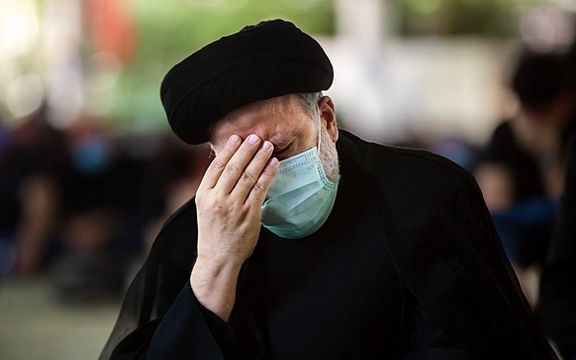
A group of plaintiffs have made a formal request for the arrest of Iran's President Ebrahim Raisi if he travels to Scotland to attend a climate conference.
The Cop26 climate summit in Glasgow will take place in November and some reports from Tehran indicate Raisi might attend the gathering. President Joe Biden and Pope Francis are scheduled to take part.
Raisi is accused of being part of a group in 1988 that executed thousands of Iranian political prisoners serving time. Before becoming president in June, Raisi spent decades in Iran’s notorious judicial system as a judge and prosecutor.
Human rights organizations and UN experts have demanded accountability fro the Iranian president and international investigation of his role in the killings.
Human rights activists, victims of torture and their relatives have asked the police in Scotland to investigate Raisi using the legal concept of universal jurisdiction, whereby any country can charge an individual suspected of crimes against humanity.
Another Iranian citizen is now on trial in Sweden for his role in the 1988 killings based on the same legal principle.